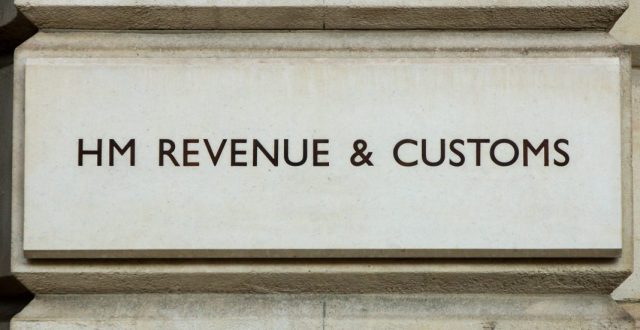HMRC publishes new Managed Service Company ‘Spotlight’
HMRC has issued a new “Spotlight” outlining their stance on Managed Service Companies, following what they are calling an “emphatic win for HMRC” at the Upper Tribunal in March, in the case of Christianuyi Ltd & Ors.
Costelloe Business Services Ltd offered an IR35 “solution” known as a composite company scheme until April 2007, when the Managed Service Company (MSC) legislation was published, outlawing such products.
At that point, they migrated composite scheme users into their own Limited Companies (Personal Service Companies, or PSCs), but, in order to mitigate the increased administrative overheads of being a sole director/shareholder for their clients, they continued to provide their Limited Company contractors with substantial support – including, crucially, issuing dividend vouchers and making tax retention deductions from the contractors’ invoices and paying them over to HMRC.
This support buffer provided to their newly independently incorporated contractors may have eased the transition, but ultimately fell foul of other key provisions in the Managed Service Company rules.
The reason for this oversight on the part of Costolloe is unclear – at the time, the MSC rules were widely accepted by the industry; even feared, due to debt transfer provisions contained in MSC that allow for uncollectable MSC tax debts to be charged to the umbrella company or accountant, or potentially even the agency or client. This made recruitment agencies very cagey about the compliance of their Limited Company contractors and had the intended effect of prompting the recruitment industry to “police” contractors’ non-compliance through improved due diligence processes.
The Christianuyi case, however, illustrates that some contractors did fall through the cracks post-MSC and were able to find agencies or clients willing to engage them, even though they were very clearly at risk of being classed as MSCs.
The MSC rules state that an MSC must distribute all revenue as PAYE employment income, regardless of the contractor’s IR35 status on a given contract, and without the 5% expenses allowance included in the usual IR35 “deemed payment” calculation.
They are also much easier to understand than IR35: if an ancillary firm that markets Limited Company solutions to contractors is too involved with the day-to-day running of their contractors’ limited companies, MSC is invoked and PAYE must be charged.
The simplicity of the MSC rules meant they were widely understood and complied with at the time of their introduction, and have been ever since. HMRC’s new Spotlight attempts to cite the Christianuyi case as providing some new clarity on the legal interpretation of MSC, when really, the key point of interest here is that it has taken HMRC twelve years to successfully litigate against MSC.
Firstly, HMRC claim that the Tribunal’s ruling has clarified the definition of an “MSC Provider”. An MSC provider was unequivocally defined in the legislation as:
“a person who carries on a business of promoting or facilitating the use of companies to provide the services of individuals” [Income Tax (Earnings and Pensions) Act 2003, Section 61B (1) (d)]
HMRC claim that the Court’s ruling “confirms HMRC’s view that if the answer to both of the following questions is yes, a person is a MSC provider:
- does the person promote or facilitate the use of a company?
- does that company provide the services of individual?”
This does not appear to vary in any substantive manner from the statutory definition.
Secondly, HMRC’s Spotlight claims that the Upper Tribunal’s ruling widened the meaning of ‘influences’ or ‘controls’ in respect of the level of influence or control an MSC provider needs to have over a contractor’s limited company, in order for that company to become an MSC, over-and-above the interpretation expressed in the First-Tier Tribunal decision.
The Spotlight says: “in this case, Costelloe Business Services Limited influenced how payments were made to workers through the use of a standard product, by causing the workers to receive wages and dividends instead of just wages.”
However, the First-Tier Tribunal’s decision is quite clear:
“Our conclusion is that it was CBS that determined that surplus funds were paid by way of dividend. In so doing, we find that CBS in the case of all five appellants controlled or influenced the way in which payments from the appellant companies were made to each individual director for the purposes of s 61B(2)(c).” [Brannan J, [2016] UKFTT 0272 (TC) at [313]]
It is hard to see how the UT decision represents a widening of the scope of this interpretation, as claimed in HMRC’s Spotlight. Both Tribunals found that the allocation of dividend vouchers by Costelloe at year-end amounted to the requisite level of control or influence to invoke MSC.
The UT appeal in fact tried to argue that Costelloe was not an MSC Provider by virtue of the fact that it did not market the services of contractors to end-clients, a staggeringly poor argument that betrays a fundamental lack of understanding of the MSC rules themselves.
One has to ask why HMRC are presenting the Christianuyi case as some kind of key legal development when, actually, it is a simple win in an obvious case of non-compliance. Could it be to detract from the length of time it has taken the Revenue to win an MSC appeal? Even this seems unlikely, as most commentators will unsurprised that there have been few cases of MSC non-compliance.
Perhaps HMRC’s rhetoric (“HMRC is relentless in closing down avoidance schemes”) could be explained by their use of behavioural psychology techniques, designed to “nudge” taxpayers towards settling voluntarily with HMRC, as exposed in the recent All-Party Parliamentary Group Inquiry into the 2019 Loan Charge.
The recent Spotlight indicates that HMRC will be stepping up MSC inquiries as a result of their recent Tribunal win, highlighting specific areas of interest as the road haulage, healthcare and education sectors. Anyone who is concerned that they may have been paid through an MSC would be best advised to contact a professional tax adviser before contacting HMRC to settle, regardless of HMRC’s aggressive rhetoric.
2nd May 2019.









